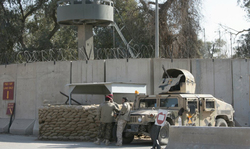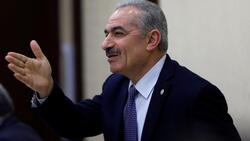Secret Documents Revealed for the First Time Show How Tehran Wields Power in Iraq

Shafaq News/ A leaked classified Iranian intelligence document showed how the regime in Tehran exercises power in Iraq through Quds Force commander Qasem Soleimani, the New York Times reported on Monday.
Now leaked Iranian documents offer a detailed portrait of just how aggressively Tehran has worked to embed itself into Iraqi affairs, and of the unique role of General Suleimani.
According to an Iranian intelligence cable, the current Prime Minister, Adel Abdul Mahdi, worked in exile closely with Iran while Saddam Hussein was in power in Iraq.
The cable indicates that Abdul Mahdi had a special relationship with Iran's Revolutionary Guards when he was Minister of Oil in 2014.
The unprecedented leak exposes Tehran’s vast influence in Iraq, detailing years of painstaking work by Iranian spies to co-opt the country’s leaders, pay Iraqi agents working for the Americans to switch sides and infiltrate every aspect of Iraq’s political, economic and religious life.
According to the newspaper, one of the former senior U.S. officials warned from Abdul Mahdi receiving his current position, "but no Iraqi politician can become prime minister without the blessing of Iran.
When he became prime minister in 2018, he was seen as a compromise candidate acceptable to both Iran and the United States.
It offers an extraordinary glimpse into the Iranian secret regime. They also detail the extent to which Iraq has fallen under Iranian influence since the U.S. invasion in 2003, which has turned Iraq into a gateway to Iranian power, linking the geography of the Islamic Republic to domination from the shores of the Persian Gulf to the Mediterranean.
According to the newspaper, the Iranian intelligence reports that were leaked confirm largely what was already known about Iran's firm grip on Iraqi politics. But far more than previously known reports reveal the extent to which Iran and the United States are using Iraq as a launching pad for spy games.
The reports highlighted the complex domestic policy of the Iranian government, where rival factions are grappling with many of the same challenges faced by U.S. occupation forces as they struggle to stabilize Iraq after the U.S. invasion.
The documents show how, at almost every turn, Iran has outperformed the United States in the competition for influence.
The archive consisted of hundreds of reports and leaks mainly written in 2014 and 2015 by officers of Iran's Ministry of Intelligence and Security, who were working in the field in Iraq.





